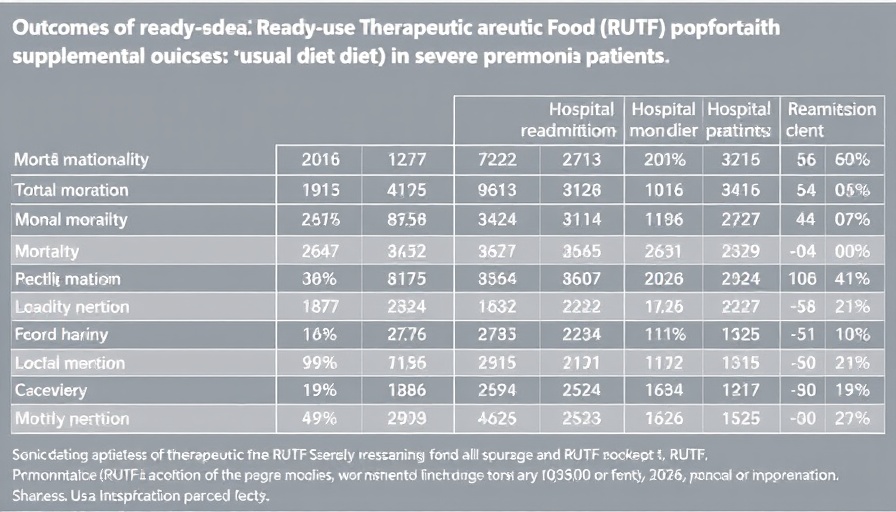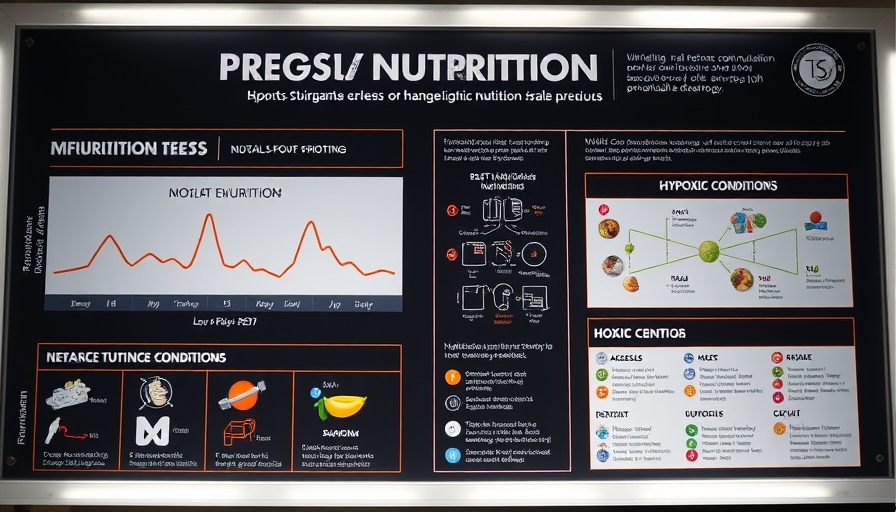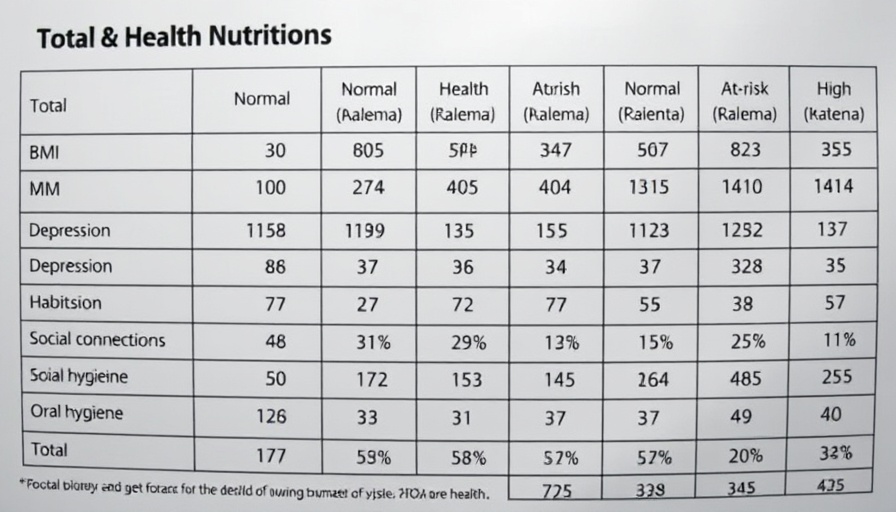
Understanding the Role of Nutrition in Severe Pneumonia
The relationship between nutrition and health outcomes, particularly in vulnerable populations like undernourished children, has been a topic of great importance. A recent study published in *Frontiers in Nutrition* assessed the effectiveness of ready-to-use therapeutic food (RUTF) on children between 6 to 59 months old suffering from severe pneumonia. While the intention of RUTF is to provide essential nutrients for recovery and growth, this study found surprisingly that it had no significant impact on reducing adverse outcomes such as mortality or hospital readmissions.
What the Study Entailed
The researchers conducted a secondary analysis of the COAST-Nutrition trial involving children hospitalized with severe pneumonia in Uganda and Kenya. Out of 846 participants, 741 met the inclusion criteria, and the team randomized them to receive either RUTF or a standard diet over eight weeks. The primary outcome was a composite measure of mortality, re-admission, or worsened nutritional status within 90 days.
Results showed that 54% of those assessed experienced at least one adverse event, with nearly identical rates between RUTF recipients (53%) and control subjects (54%). This lack of difference raises pertinent questions about the current protocols used in managing nutritional support in pediatric pneumonia cases.
The Importance of Tailored Nutritional Support
Given the findings, it appears that while RUTF has been widely used, its role in treating severe pneumonia needs reconsideration. Adverse outcomes actually decreased with increasing age, suggesting that nutrition's effect on recovery may interact with age-related factors. This points to the importance of personalized nutritional interventions that consider metabolic needs after illness, especially tailored for younger demographics.
Broader Implications in Nutritional Science
Amidst a growing interest in anti-aging supplements and nutraceuticals—such as NAD+ supplements, Omega-3 for longevity, and collagen for aging—the conventional belief that all nutritional supplements provide clear benefits may need reevaluation. The findings from this study stress that not all nutrition interventions yield the expected outcomes, particularly in complex cases of severe illness like pneumonia.
Future Directions in Pediatric Nutrition
This study serves as a call to action for researchers and health professionals to explore newer, perhaps more effective avenues in pediatric nutrition. Investigating alternative dietary strategies might yield better support systems for children with severe illnesses. In addition, reinforcing metabolic recovery post-illness could be critical in improving overall treatment outcomes.
Conclusion
The recent research underscores a critical truth in nutritional sciences: supplementation must be evidence-based and tailored to individual health circumstances. The lack of effectiveness of RUTF in this context informs ongoing dialogues in the health community about optimizing nutritional strategies for vulnerable populations.
As we continue to explore the benefits of supplements—from Omega-3s to adaptogens—we're reminded of the necessity for rigorous evidence and targeted interventions to ensure the best health outcomes. Empowering our dietary choices with research-backed insights can pave the way toward improved health and vitality.
 Add Row
Add Row  Add
Add 




 Add Row
Add Row  Add
Add 


Write A Comment